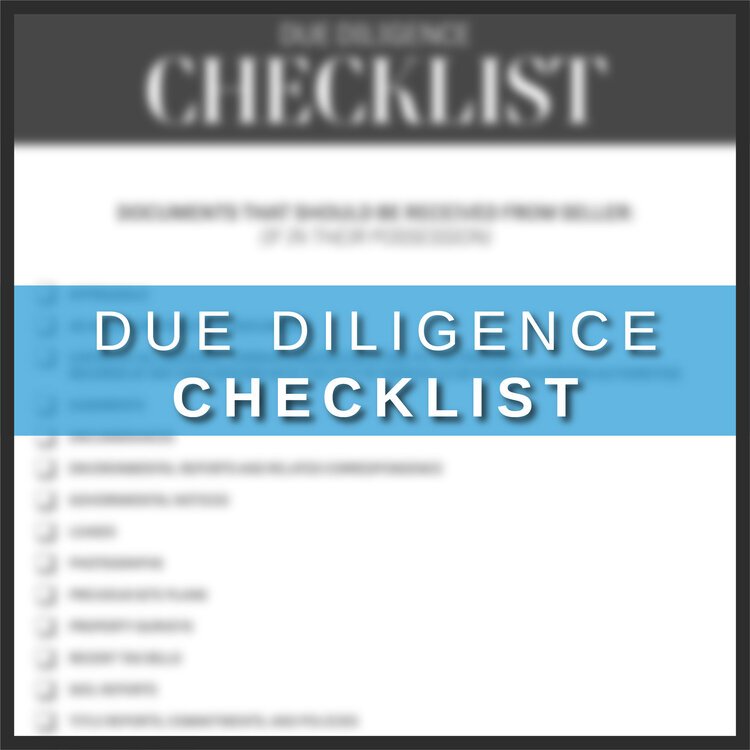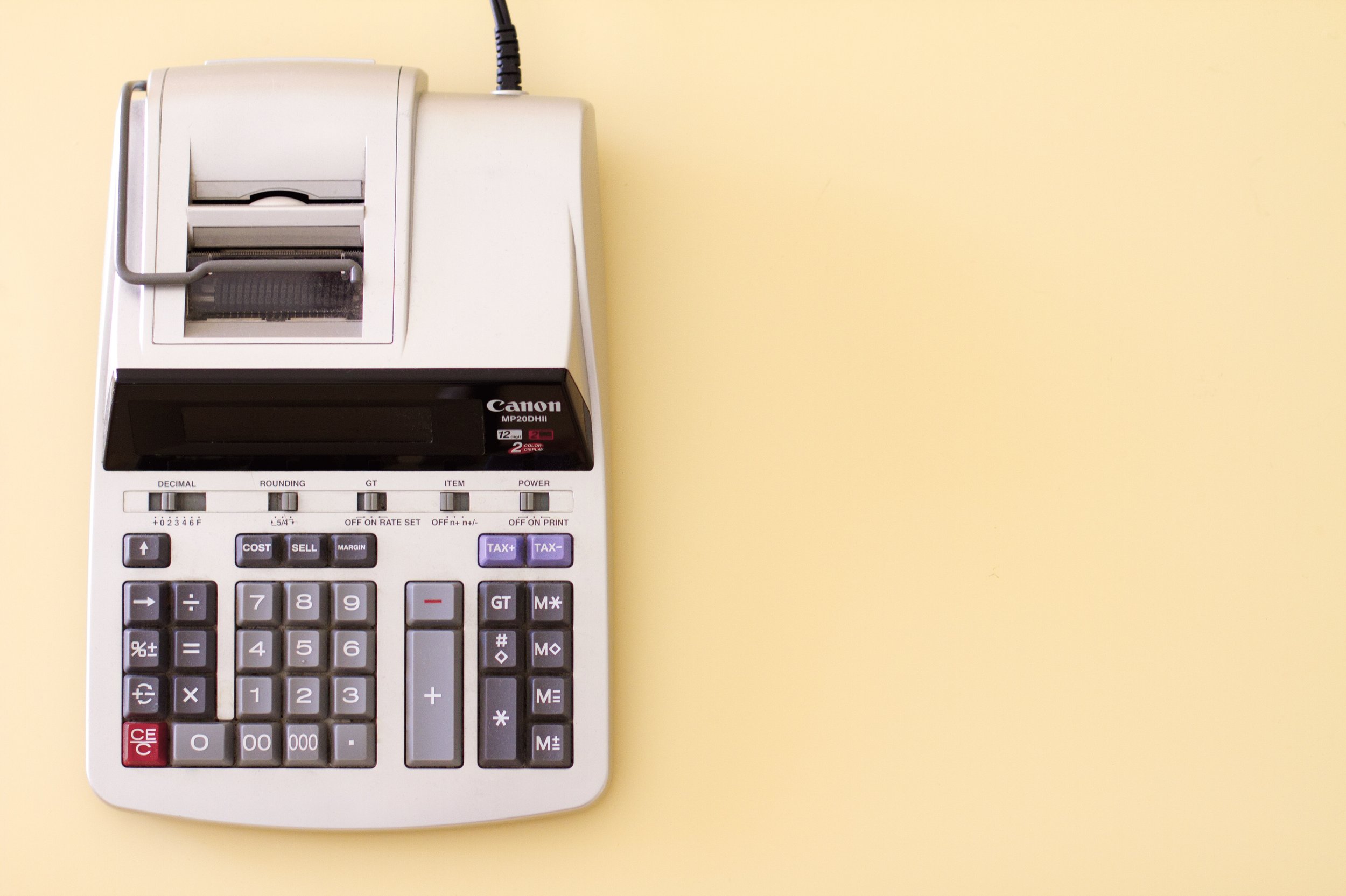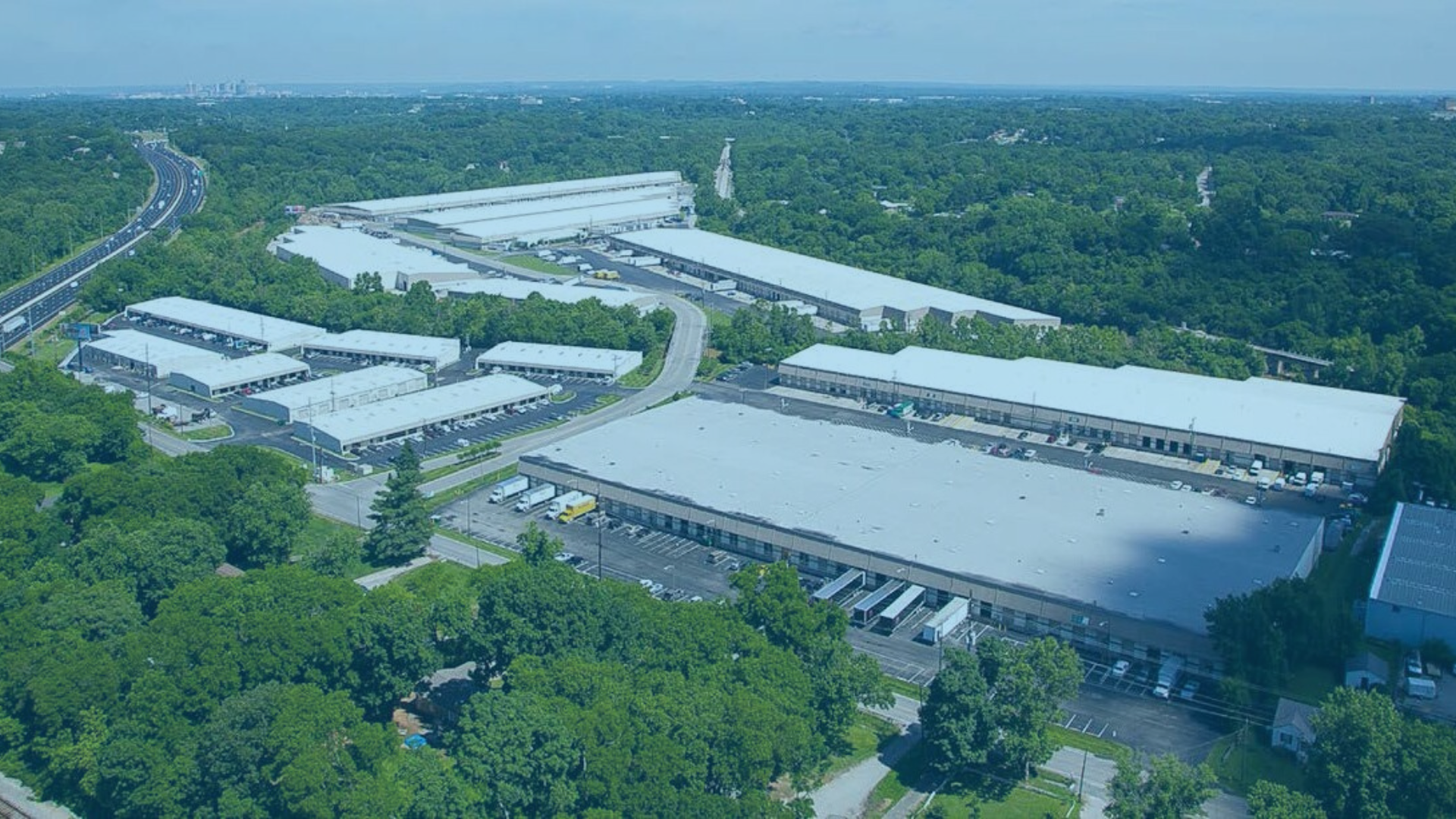Step by Step: Commercial Real Estate Due Diligence [With Checklist]
As seasoned commercial real estate investors like to say, “you make your money when you buy it.”
So, if that’s true, then conducting your due diligence before you buy the site is crucial to your success as an investor.
But what if you’ve never been through the process before?
Here’s my step by step guide on commercial real estate due diligence with a checklist for you to download at the end.
1. Organize The Files
Once the contract is fully executed and finalized, we organize it into a project folder on Google Drive and send a fully executed copy to our real estate attorney and any partners involved in the project.
The sellers will have a number of files that we require they turnover within a specified number of business days after the execution of the contract - typically 5 to 10 business days. These files can include:
Property surveys
Leases
Appraisals
Governmental notices
Photographs
Easements
Encumbrances
Title reports, commitments, and policies
Recent tax bills
Environmental reports and related correspondence
Soil reports
Zoning documents
As-built construction documents
Previous site plans
Copies of all material correspondence relating to the Property
Records of any discussions with the City of Nashville or other governing authorities
And all other testing reports and civil documents relating to the Property or the development thereof that are in Seller's possession or are otherwise available to Seller
As you can tell, having these files readily accessible through the Cloud is critical when working with multiple team members and partners since everyone can add to and view the folder at any time necessary.
Be sure to thoroughly investigate each of these files to ensure that you fully understand what is involved with the property you’re buying.
2. Explore Financing Options
If you haven’t discussed the project with your lenders prior to going under contract, open up the conversation with them immediately.
The more time you have to work with your lender on the project and get them comfortable, especially if it’s unique or a heavy lift, the better off you’ll be when it comes to closing.
Lenders will typically require the following from each of the partners:
2-3 years of tax returns and K-1s (if any)
A personal financial statement
A copy of driver's licenses
Your track record
I also send them a CRS tax report on the project, an overview of my plans for the site, an abbreviated version of my underwriting, and an abbreviated version of my offering memorandum.
Now, if you’re raising capital for the project, it’s unlikely that you’re going to have your offering memorandum compiled the same day that you put the property under contract.
I typically open up the conversation with potential lenders to test the waters and see if this project is inline with what they’re interested in at this stage. If so, I get high level terms that can help me finalize my underwriting before I come back to them with my full request on the project.
3. Review The Operations
Begin reviewing any and all contracts and documents related to the property after receiving them from the owners, including but not limited to:
Leases
Operating expense statements
Utility bills
Rent rolls, etc.
If you’re buying a property based on the income that it produces (like on a cap rate), then you’ll want to double-check to make sure that the property is actually making the money as advertised.
At this point in the due diligence period, I’ll loop in my property management firm to help dive into the leases, rent roll, and operating expenses. They’ll also visit the site with me so that we can start putting together a list of capital expenditure items that may need to be addressed in the next few years.
If possible, get your CPA or financial officer involved in the numbers, too. Fortunately, it’s fairly easy to “follow the numbers” if you have qualified professionals on your side so that you know how truly profitable (or unprofitable) the site is.
When you’re able, you’ll want to open up discussions with the current tenants to see what they like and don’t like about the property, what their wish list might be, and if they’re interested in renewing their lease terms. Of course, you’ll likely need to do this talking through the current owner or their property manager, considering how sensitive sales can be sometimes with tenants.
Your primary objective here should be to investigate how you could possibly run the property more efficiently. We’re able to significantly increase our property values, oftentimes without raising rents, simply by decreasing our operating expenses and therefore increasing our net on income.
Now would be a good time to see if you can get a better deal on landscaping, property management, save utility costs by installing LED lighting, and more.
4. Inspect the Property
You may even get to this before diving into the documents, but you’ll want to inspect the property.
And I don’t mean just a casual walkthrough - I mean the kind of inspection where you spend half the day onsite if the project is big enough. You need to be thorough in your inspection and get eyes on every possible nook and cranny to make sure you know what potential issues there may be onsite.
You’ll also want your team with you, which could include:
Property management
General contractor
Leasing brokers
Architect
Property inspector
And anyone else you may deem necessary
Now that I’ve worked on a number of projects from the brokerage, management, and ownership sides, I have a pretty good understanding of exactly what I need to look for when I’m on a site visit. However, I will still engage a property inspector if I find anything suspicious so that I have backup to my claims should I need to renegotiate with the seller.
When you’re on site, try to ask the business owners / employees and any customers what they like and don’t like about the property. You’ll be surprised at what they’ll share with you and it’ll certainly help with not only your understanding of the property, but also your tenant relations if you actually fix the issues they point out.
5. Bring In the Site Consultants
Unless you have a number of degrees on the wall, it won’t be possible for you to conduct all of your due diligence on your own.
So, that’s where your site consultants come in.
I’ll typically engage this team once I’ve gotten through my initial inspections to make sure that I’m as smart with my money as possible. After all, if you can’t get past an issue in the rent roll, there’s no point in hiring a team to core drill the site, right?
Phase 1 Environmental (ESA)
The phase 1 environmental report, often referred to as “ESA,” assesses the current and historical uses of the property to determine whether there may or may not be contaminated soils and waters, asbestos, and lead-based paint.
Each of these would, of course, need to be remediated prior to tenancy since they pose a major health risk.
(ALTA) Survey
Surveys are performed to demonstrate precisely where your property abuts to your neighbors’ properties, which can be important to have if parking lots, fences, and even buildings are encroaching on the wrong property.
You can take these a step further by performing an ALTA survey, which may be required by your lender and relate the boundaries to the property’s title.
Geotechnical
Geotechnical engineers run reports on your site by drilling bore holes throughout the property, providing you with:
Information about the type of soils present
Soil compaction, strength, and density
The presence and potential location of rock
And solutions for any potential site issues
The last thing you’d want to do when buying commercial property is to undercut your development budget because you didn’t anticipate having all rock onsite.
Traffic Engineers
Traffic engineers conduct studies about the flow of traffic to and from the property and in surrounding neighborhoods to determine the potential impact of your project.
The study will reveal any potential bottlenecks and infrastructural issues that may arise and can determine whether or not you need to add traffic lights, four-way stops, speed bumps, and more.
6. Engage Your Architect and Engineer
At this point in the due diligence timeline, you’re ready to start putting together your official plans for the property.
If you’re just looking to renovate the site, you’ll only need to get your architect to work with you on renovation plans and selections.
However, if you’re developing from the ground up, you’ll want to engage both your architect and civil engineer, who will be working together to make sure that you’re maximizing your site potential in every way possible.
Your architect will help you re-imagine the aesthetic appeal of the building through redesign, updating selections, and more. They’ll also help put together your floorplans and any renderings, which can come in handy if you’re looking to market and potentially pre-lease or pre-sell some units.
Your civil engineer will dive into all of the utilities, storm water retention and drainage, and anything else that has to do with the horizontal site work.
Essentially, your engineer prepares the dirt and your architect prepares the building.
7. Settle Legal Issues
While you’re working on financing, diving into the operations, inspecting the property, and working with your various project consultants, your real estate attorneys will be working in the background to be sure you’re covered legally.
Not only will they also review all of the documents provided by the seller (which I highly recommend!), but they’ll also dive into the title work to ensure that you’re buying a piece of property that the seller can actually sell!
If there are any issues that are brought up from a contractual standpoint, such as easements that weren’t expected or disclosed, leases that have expired or outdated, or otherwise, your attorney will be able to assist you in clearing up these matters.
You’ll also want your attorney to review the loan documents provided to you by the bank, as they can help negotiate out some of the more “unfavorable” loan terms.
8. Close!
You’ve now reviewed and fully satisfied the 5 main due diligence sectors:
Environmental
Financial
Operational
Legal
and Physical
Now that you have enough confidence in the property that you’re acquiring, it’s time to close the deal!

![Step by Step: Commercial Real Estate Due Diligence [With Checklist]](https://images.squarespace-cdn.com/content/v1/5c115fec9d5abbba78a23c93/1608577160826-IDO8MX36BH413U3AOCL4/Commercial+Real+Estate+Due+Diligence+BANNER-01.jpg)
![Commercial Real Estate Due Diligence [With Checklist]_Organize The Files.jpg](https://images.squarespace-cdn.com/content/v1/5c115fec9d5abbba78a23c93/1608579453349-GY1L0A8OKSATCIK0WVLA/Commercial+Real+Estate+Due+Diligence+%5BWith+Checklist%5D_Organize+The+Files.jpg)
![Commercial Real Estate Due Diligence [With Checklist]_Explore Financing Options.jpg](https://images.squarespace-cdn.com/content/v1/5c115fec9d5abbba78a23c93/1608579480942-WIN7D8CP5A3V1M7O1T3L/Commercial+Real+Estate+Due+Diligence+%5BWith+Checklist%5D_Explore+Financing+Options.jpg)
![Commercial Real Estate Due Diligence [With Checklist]_Review The Operations.jpg](https://images.squarespace-cdn.com/content/v1/5c115fec9d5abbba78a23c93/1608579501233-DKVY21OG3YZH470CHMFC/Commercial+Real+Estate+Due+Diligence+%5BWith+Checklist%5D_Review+The+Operations.jpg)
![Commercial Real Estate Due Diligence [With Checklist]_Inspect the Property.jpg](https://images.squarespace-cdn.com/content/v1/5c115fec9d5abbba78a23c93/1608579520482-73Y4BQILHOUSEICH32LN/Commercial+Real+Estate+Due+Diligence+%5BWith+Checklist%5D_Inspect+the+Property.jpg)
![Commercial Real Estate Due Diligence [With Checklist]_Bring In the Site Consultants.jpg](https://images.squarespace-cdn.com/content/v1/5c115fec9d5abbba78a23c93/1608579556385-HXVQS8LG7APXMCG5M5ZG/Commercial+Real+Estate+Due+Diligence+%5BWith+Checklist%5D_Bring+In+the+Site+Consultants.jpg)
![Commercial Real Estate Due Diligence [With Checklist]_Engage Your Architect and Engineer.jpg](https://images.squarespace-cdn.com/content/v1/5c115fec9d5abbba78a23c93/1608579577603-5RAUEUCI0TBNNKK07Q4S/Commercial+Real+Estate+Due+Diligence+%5BWith+Checklist%5D_Engage+Your+Architect+and+Engineer.jpg)
![Commercial Real Estate Due Diligence [With Checklist]_Settle Legal Issues.jpg](https://images.squarespace-cdn.com/content/v1/5c115fec9d5abbba78a23c93/1608579602156-FBU1OD8M8ODWODKKEVIO/Commercial+Real+Estate+Due+Diligence+%5BWith+Checklist%5D_Settle+Legal+Issues.jpg)
![Commercial Real Estate Due Diligence [With Checklist]_Settle Legal Issues.jpg](https://images.squarespace-cdn.com/content/v1/5c115fec9d5abbba78a23c93/1608579619814-2NBQQ5ZF28MRIYBH9Z07/Commercial+Real+Estate+Due+Diligence+%5BWith+Checklist%5D_Settle+Legal+Issues.jpg)












Quickly determine if a deal is worth pursuing or not.